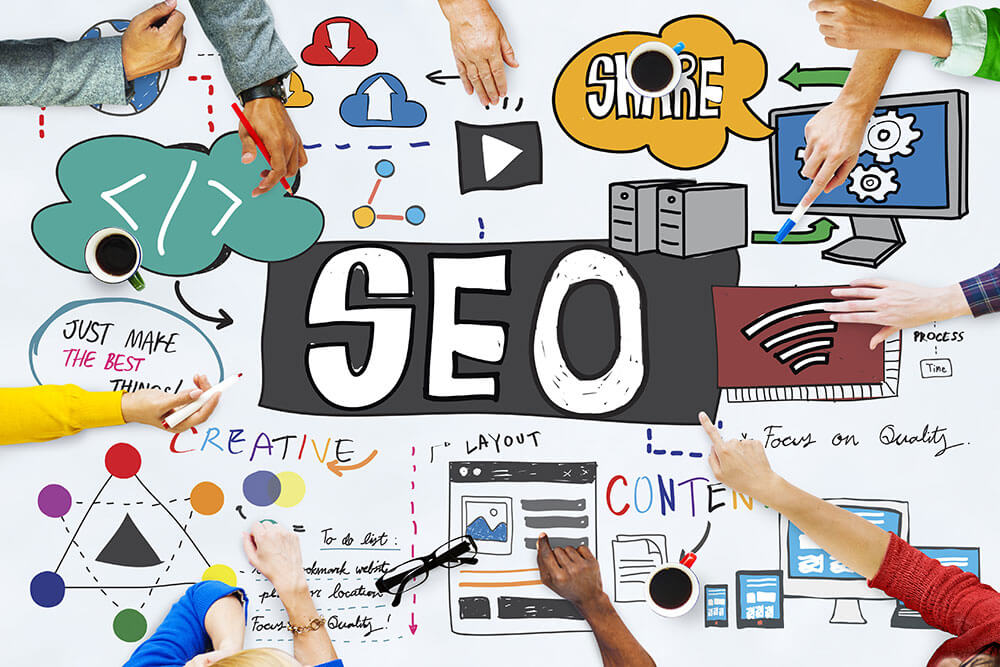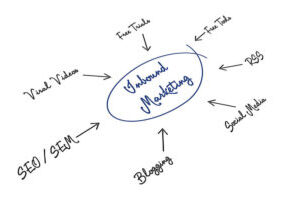What's Better For Your Business: Paid vs Organic Search?
Wondering if your company should invest in paid or organic search? Why not both? Here is a guide to paid vs organic search.
Starting a website is one thing, but making it grow in visitor count and ROI is something else entirely. That is why website owners often turn to SEM (Search Engine Marketing) professionals like us to help drive traffic to their websites.
There is no denying the fact that SEM is the most beneficial way to drive traffic, ultimately increasing a website's visibility on the SERPs. It ensures that the consumers can reach your business whenever they search for things relevant to your business.
Driving traffic requires SEM tactics, i.e., SEO or PPC, where SEO is organic while PPC is a paid search mechanism. Both techniques are proven to improve website rankings and visibility significantly. But, each of them works differently and has a different impact on your business.
However, the success of SEM and its tactics depends entirely on you and the resources you have. You'll need to invest money in paid search, but organic search marketing will require a considerable amount of your time, so it's a tradeoff.
Are you willing to part with more of your money, or would you rather spend your time securing the search domination of your business?
We suggest creating a unique search marketing strategy with a tailored mix of both, built on the solid foundation of organic search.
But before you make the final decision, let's learn more about the two options.
Here is a guide to paid vs. organic search.

What Is Paid Search?
Paid search, commonly known as PPC or paid advertisement, includes paid ads that appear on top of google search results. It drives the more qualified leads and the most relevant traffic to your website.
You can invest in paid search by opting for Pay-Per-Click or Pay-Per-View and advertise on the SERPs for a hefty amount of money. Once Google approves your ad, you'll have to pay for every click or view your ad gets.
While PPC and PPV ads offer a massive ROI (that's why they are still around), some marketers have expressed dissatisfaction that they sometimes end up paying for clicks and views from uninterested or wrong audiences.
What you need to do is make ad campaigns relevant with the right strategy. Enlist experts who can help you find the right keywords, tweak the audiences, and get the copy right from the get-go. This is key for scoring a lower cost-per-click, leading to a more profitable paid search campaign.
As of October 2020, Google Ads were responsible for over 90 percent of global search traffic – the reason was paid search. Moreover, Google Ad spending by numerous businesses globally is expected to show an annual growth rate of 5.35% between 2021 and 2025, making up to $211,421M by 2025.
The stats show that more businesses are investing in pay-per-click (PPC) advertising, and here is why:
Pros Of Paid Search
- Produces faster results
- Offers more measurable results
- Generates more qualified leads
- Improves brand recognition
- Works well for local search
Cons Of Paid Search
Many businesses are still hesitant about the method. The reason behind this is the hefty costs of running a successful PPC campaign.
The ROIs make it an attractive option, but small to medium-sized businesses have to think a thousand times before investing in PPC. And here is why:
- Mounting bills regardless of the number of sales
- The costly approach of advertising
- Short term results that make it unsuitable for maintaining the SERP ranking
Now that you have discovered the basics of paid search, it's time to learn about organic search, aka SEO.
What Is Organic Search?
Organic search marketing practices refer to SEO (Search Engine Optimization). The technique involves several approaches to optimize a website for more visibility and better ranking. Numerous elements make up the SEO process, including keywords, URLs, web design, search intent, excellent content, a lot of analytics, link building, and various tools.
The process entails producing SEO-friendly content that is published on the website as well as external links. On-page content is to let search engines know what your website and services are all about. And off-page content (i.e. external/backlinks) assure Google that you and your website are reliable.
As a result, SEO services are a time-consuming process but proven to produce lasting results that keep your website at the top of the SERPs for longer. It entails a complex process that can take several months to gradually increase the website's ranking and visibility on the SERPs.
Regardless of its complexity and the time it consumes; businesses prefer to invest in SEO practices than other SEM methods.
Google claims that backlinks are one of the three top ranking factors for a website, which means more backlinks ultimately lead to better ranking. And as a result, 53.3% of the traffic is derived from organic search. Also, leads generated from SEO practices have a 14.6% close rate.
Here is how SEO services help businesses grow online:
Pros of Organic Search
- The most cost-effective method
- Drives more traffic
- Massively increase the ROI
- Boosts the credibility of a business
- Drives relevant prospects
- Provides the most valuable actionable data
- Support multi-channel approach of business
- Provides results that last
Cons of Organic Search
- Takes time to provide ROIs
- Requires you to hire an SEO expert
- Requires learning
- Doesn't offer complete control to the business
All in all, it has more pros than cons, making it considerable for any business size. Now that you have covered both paid and organic search, their pros and cons, here is the verdict to shed light on the difference between organic search vs. paid search!
Paid Search Vs. Organic Search – The Experts At Epitome Digital Marketing Are Here To Help!
Google's search engine algorithm uses more than 200 factors to rank websites that keep on changing over time. High-quality content and link building are the two of the three most important factors used by Google to rank websites for the SERP.
Considering that paid search results appear on the top of the SERP before the organic products, around 70% to 80% of the searchers instantly ignore paid listings and click through the organic results. Moreover, 60% of marketers say that SEO is one of their highest quality sources for lead generation. As a matter of fact, the first five organic SERP results account for 67.60% of the open rate.
With the stats being so convincing, it is not hard to say that organic search is significantly better than paid search.
Paid and organic search both are great ways to bring traffic. But both have a different impact on the business, changing the game entirely. Paid search can only get traffic till the time you keep paying for the campaign. Once you stop, you lose the ranking and the traffic as well. On the other hand, SEO takes time to grow your business and increase your ranking, but it won't affect your progress even if you stop working for some time.
Start building your ranking with SEO and eventually add PPC services to your strategy.
If you want to leverage the power of organic search for your business, get in touch with our SEO specialists at Epitome Digital Marketing today. Or call us at (980) 404-9250.
Get Instant Access To Digital Marketing Mastery
Learn the secrets of quickly growing your business and bringing in more leads with our exclusive email list. Subscribers receive monthly emails about:










